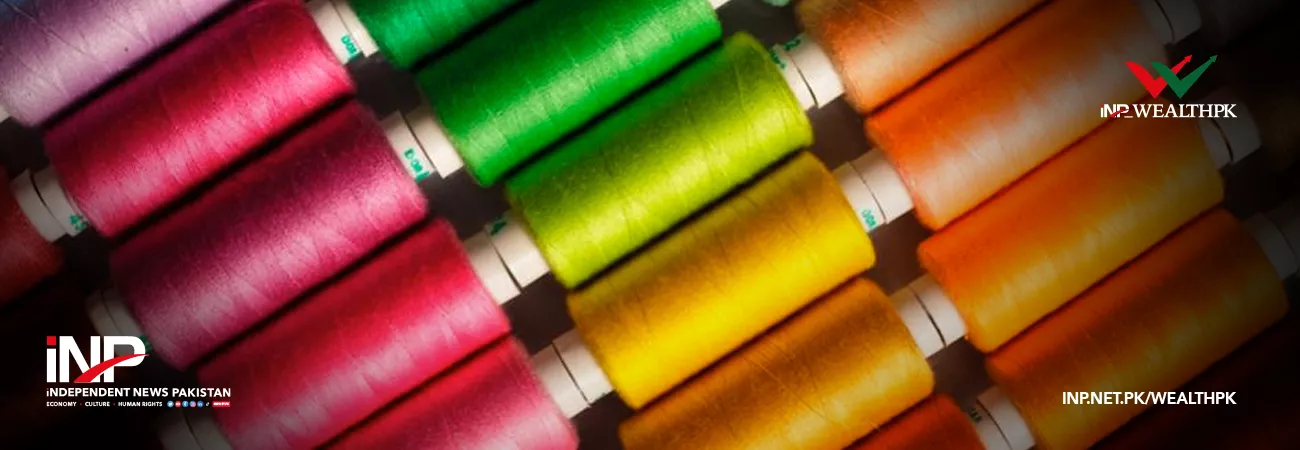INP-WealthPk
Raza Khan
All Pakistan Textile Mills Associations (APTMA) has predicted an 8-10 percent decline in textile exports during the current fiscal year (2022-23). "The economic situation of the country and the declining trend in overall exports indicate that Pakistan will not be able to sustain the positive growth in textile exports during the current year," APTMA Member Hamid Zaman told WealthPK.
He cited a lack of foreign exchange reserves in the country, high energy and raw material prices, and a slowing demand for textile products in major markets as some of the causes for the anticipated fall in exports. He said that instead of achieving the $25 billion textile export target for 2022-23, it seems exports will go even lower, from last year’s $19.4 billion to around $18 billion.
According to APTMA, Pakistan’s textile exports in the first five months (July-November) decreased by 4% against the corresponding period of the last fiscal year. Textile exports during the first five months of this fiscal year dropped to $7.44 billion from $7.76 billion in the corresponding period of 2021-22.
Hamid Zaman said that only 6 million cotton bales would be available for the textile industry in 2022-23 in the country, while the demand is 14-15 million. "It means we need to import 8 to 10 million bales of cotton," he added. He expressed his fear that the country does not have enough foreign exchange reserves for the import of cotton, machinery, and other raw materials for the textile industry. "If we do not import raw material, we cannot export finished products," he said, adding that it would result in a decline in textile exports during this fiscal year.
The APTMA member said that natural gas shortages are also making matters worse. "The government has to provide gas to the export industry in winter if we want to sustain exports during these tough economic conditions," Hamid asserted. Given the upbeat trend over the previous four years, he said that exporters anticipated a rise in textile shipments of up to $25 billion this year. However, the target seems to be missed, he feared.
Hamid said that apart from domestic issues, a breakdown in demand in major markets like the United States and Europe due to the recession is also contributing to the decline in textile exports. "This is something we really cannot do anything to control." He said that exporters are also struggling to get liquidity and financing to invest. "It is also impossible for exporters to obtain loans from banks due to the high policy rate," Hamid said. He pointed out that the government is delaying the release of sales tax refunds, which also added to the problems.
According to APTMA Pattern-in-Chief Ejaz Gohar, Pakistan's textile industry is doing well despite internal problems and a slump in major markets. "Pakistan’s textile exports dropped by only 4% during the first five months of the current fiscal year, despite many challenges," he said. He said that the government needs to take certain measures to save the exports from a major collapse. However, some of the circumstances are unavoidable, like the recession and high prices of energy in the global market.
Credit : Independent News Pakistan-WealthPk




